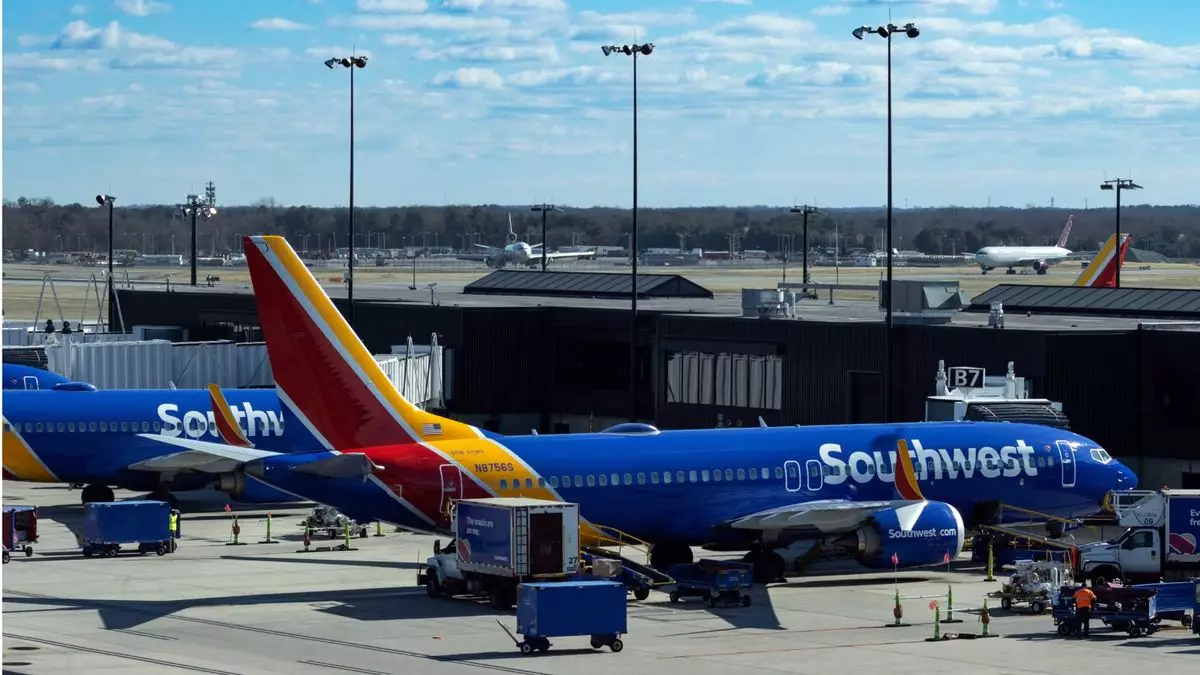On April 1, 2024, Ryan Green, an influential figure in Southwest Airlines’ leadership, will step down from his role as executive vice president and chief transformation officer, as disclosed in a recent filing with the U.S. Securities and Exchange Commission (SEC). Green’s journey with Southwest began in 2002, and he held various significant positions, including chief commercial officer and chief marketing officer, leading key initiatives that shaped the airline’s strategic direction. His resignation, announced on February 18, signifies more than just a personal career move; it encapsulates a transforming corporate landscape at Southwest Airlines and reflects the ongoing challenges faced by the aviation industry.
The context of Green’s departure is accentuated by noteworthy developments involving Elliott Investment Management, a prominent activist investor. The SEC filing revealed an amendment allowing Elliott to increase its stake in Southwest Airlines to 19.9%, up from the previous limit of 14.9%. This shift empowers Elliott to exert greater influence over the airline’s strategic direction amidst their previous threats to instigate a proxy battle. Last year, the investment firm had called for changes within Southwest’s board structure and leadership, including the controversial ousting of president and CEO Bob Jordan. Despite pressures, Jordan has navigated through this tumult, retaining his position while the previously agreed-upon board restructuring unfolded.
The backdrop of executive turnover also coincides with startling workforce reductions. Southwest Airlines has announced plans to cut approximately 15% of its corporate workforce, translating to about 1,750 positions. This represents a historic decision in the airline’s 53-year legacy, as articulated by Jordan in an official statement. The cuts are unfurling alongside an unsettling period for the airline, wherein eleven senior leadership roles will also be eliminated. Despite speculation, Green’s name has not surfaced among those impacted by the layoffs, hinting at either his existing plan to depart or a strategic choice to retain him during this transitional period.
Green’s exit and the intensifying input from Elliott Investment Management suggest that Southwest Airlines is at a pivotal crossroad, grappling with both internal restructuring and external pressures from investors. As the airline adjusts to a redefined operational model marked by significant layoffs and board changes, stakeholders will keenly observe how leadership dynamics will shift in the upcoming months. Moreover, with the backdrop of a competitive and often volatile airline industry, it will be crucial for Southwest to ensure operational stability while appeasing investors eager for impactful returns.
Ultimately, as the Southwest Airlines narrative unfolds amidst a backdrop of transformation and adaptation to new challenges, the forthcoming months will be telling. The decisions made now may well lay the groundwork for the airline’s future trajectory, creating a landscape where strategic agility becomes as vital as its iconic brand image.

